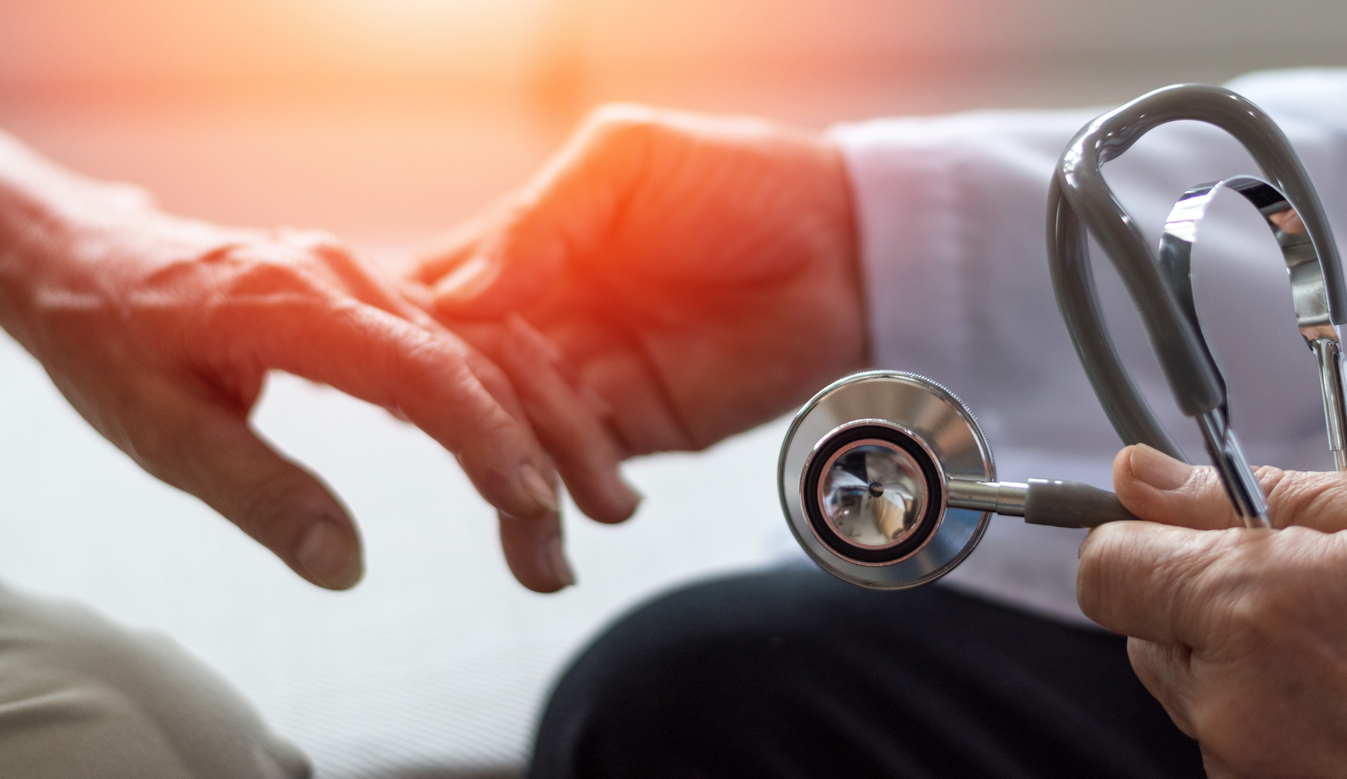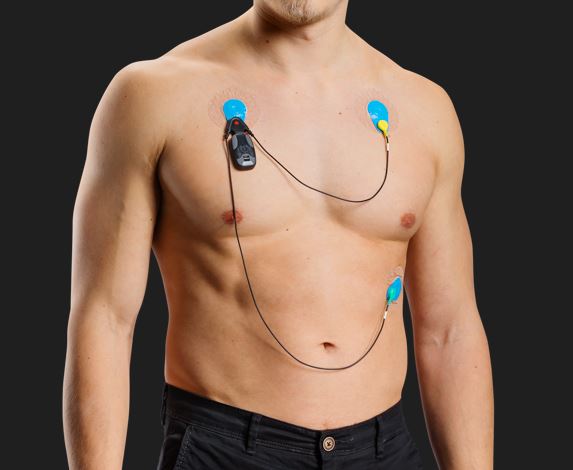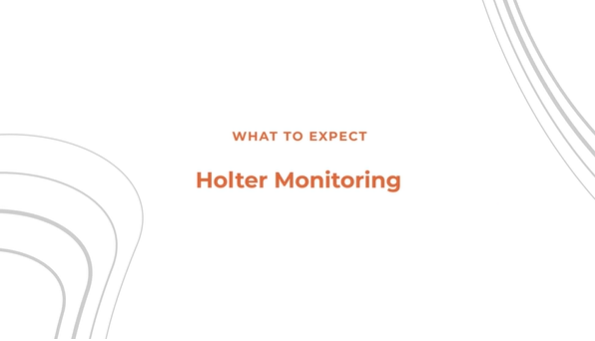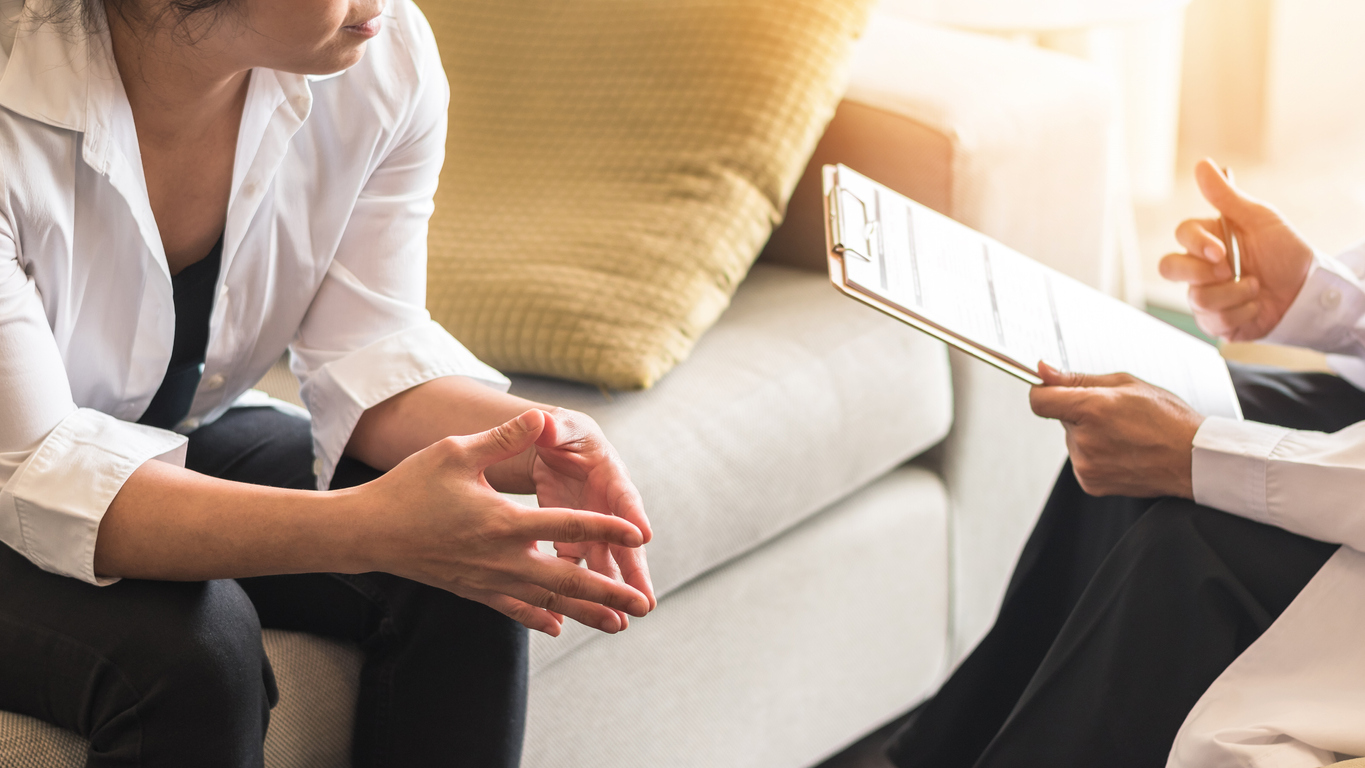
Holter Monitoring
What is a Holter monitor?
A Holter monitor is a portable electrocardiogram (ECG) device that your doctor may ask you to wear to record your heart’s activity over 24-48 hours. It’s sometimes called an ambulatory ECG. It monitors your heart’s rhythm and can help detect irregular heartbeats (arrhythmia).
The inconspicuous device measures your heart through painless electrodes stuck to your chest and abdomen. Unlike a standard ECG test, the Holter monitor provides a continuous recording that your doctor can review to detect intermittent symptoms. A standard ECG test can only record abnormalities if they occur during a relatively short test period at a medical centre.

Why do I need a Holter monitor?
Why do I need a Holter monitor?
Your doctor may order a Holter monitor test if you’re experiencing symptoms that may be associated with your heart rate or rhythm. Symptoms may include fainting, dizziness, shortness of breath, chest pain, an irregular heartbeat (arrhythmia) or if you have had a stroke or mini stroke. If you’re already taking heart medication, a Holter monitor can show your doctor if it is working.
If you’ve already had a standard ECG, but it didn’t reveal any issues with your heart, your doctor may suggest wearing a Holter monitor to record your heart over a longer period.
What to expect when wearing a Holter monitor
Most people are asked to wear a Holter monitor for 24-48 hours or 7 days, including when sleeping. During this time, you may not be be able to remove the device or get it wet.
Otherwise, you should go about your normal daily activities and eat and drink as normal.
Holter Monitor
What to expect

FAQs
Is a Holter monitor safe?
The test is non-invasive with minimal risk. However, the sticky electrodes can sometimes cause redness or skin irritation.
How do I prepare for wearing a Holter monitor?
It’s advisable to shower before having the monitor fitted as you may not be able to bathe during the test period.
What should I do on the day of the fitting?
- Bring a list of your current medications (This is generally a good idea for all medical appointments).
- Wear a two-piece outfit, so it’s easy to fit the Holter monitor to your chest and abdomen.
- Shower before you arrive and do not wear talc, body lotion or neck chains.
What happens during the fitting?
- It takes around 20 minutes to fit the device.
- You will need to undress to the waist. Females will be provided with a gown for privacy.
- Men may require part of their chest to be shaved.
- Electrodes will be placed on your chest and abdomen and then attached to the Holter machine.
- You’ll be shown how to attach the device to your clothes.
- You will be shown how to reattach electrodes if they come loose.
What happens after the fitting?
- You will be requested to continue your normal activities.
- Don’t swim, shower or bathe while wearing the Holter monitor.
- You will be advised to record your activities, so any changes in your heart rate or rhythm can be matched to certain behaviours.
- Record any specific symptoms you experience while wearing the Holter monitor, such as dizziness, chest pain or shortness of breath.
What happens after the test?
- You will be asked to return to the clinic for the Holter monitor to be removed.
- One of our cardiologists will review your results and provide a full report back to your referring doctor. Depending on the results, your doctor will discuss the next steps with you.
What do the results of a Holter monitor mean?
Holter monitors can give your general practitioner (GP) or cardiologist information to help detect an abnormal heart rhythm (arrhythmia). They can also help determine if any current heart medication is working and if the dose is correct.
Your doctor will explain the results to you in full.

How do I make an appointment?
If you have a referral from your GP, click here to find your closest centre.
This information is of a general nature. If you are concerned about your heart health, discuss this with your local doctor.

